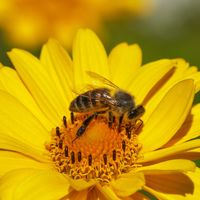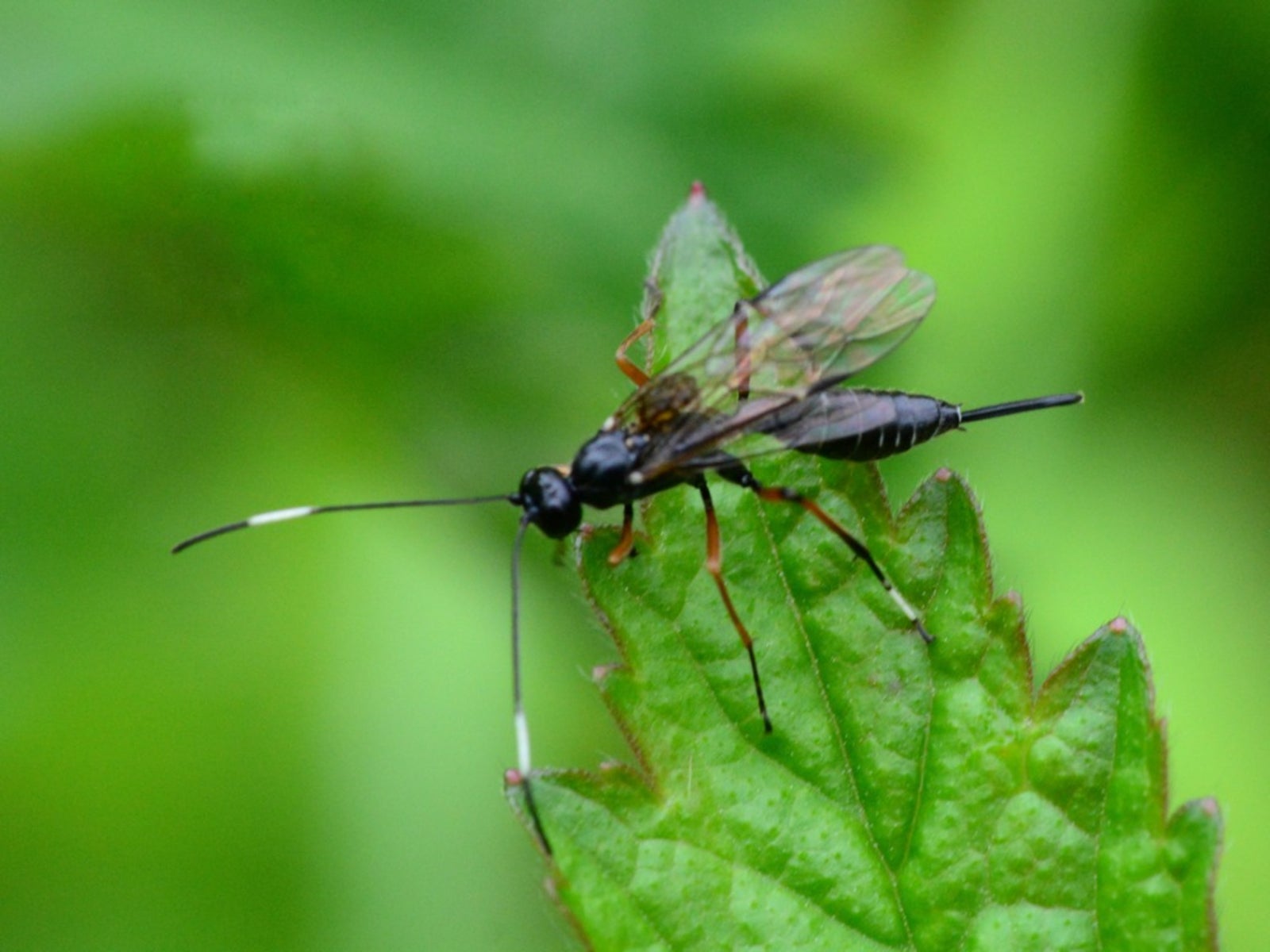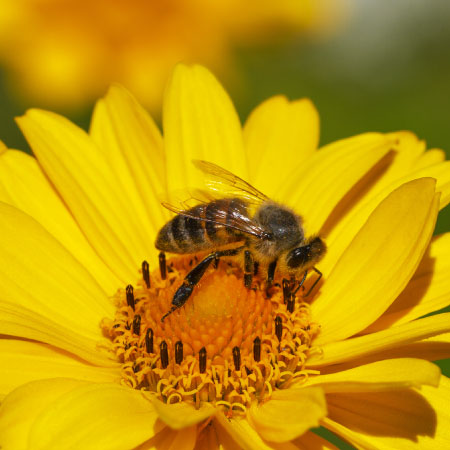Parasitic Wasp Info - Using Parasitic Wasps In Gardens


Sign up for the Gardening Know How newsletter today and receive a free copy of our e-book "How to Grow Delicious Tomatoes".
You are now subscribed
Your newsletter sign-up was successful
Wasps! If just the mention of them sends you running for cover, then it's time you met the parasitic wasp. These stingless insects are your partners in fighting the battle of the bugs in your garden. Using parasitic wasps in gardens is often more effective than spraying plants with insecticides. Let's learn more about the life cycle of the parasitic wasp and how these insects benefit the garden.
Life Cycle of the Parasitic Wasp
Female parasitic wasps have a long pointed structure at the end of their abdomen. It looks like a stinger, but it is actually an ovipositor. She uses it to pierce pest insects and deposit her eggs inside. When the eggs hatch, they feed inside the host insect for a short time and then they cut a hole to escape. The wasps can repeat this cycle several times a year. Parasitic wasps usually become active in the garden later than pest insects, and some of them are so small that they are difficult to see. One way to track their progress is to watch the aphids. The skin of parasitized aphids turns crusty and golden brown or black. These mummified aphids are a good indication that parasitic wasps are doing their job.
How Parasitic Wasps Help the Garden
Parasitic wasps, along with other beneficial garden insects, are very effective at keeping garden pests under control. In fact, when you spray your garden with broad spectrum insecticides, you may find that the problem gets worse instead of better. That's because you have killed the parasitic wasps but not the pest that is causing problems. The range of pests managed by parasitic wasps is nothing short of amazing. They effectively control aphids, scale, whiteflies, sawfly larvae, ants, leaf miners, and several types of caterpillars. They also parasitize the eggs of several insects, including European corn borers, tomato hornworms, codling moths, cabbage loopers, and imported cabbageworms.
Parasitic Wasp Info
Attract parasitic wasps to the garden by planting species of herbs and flowers that supply the nectar and pollen they need, including Queen Anne's lace, dill, cilantro, and fennel. They also feed on the nectar of many flowering trees and shrubs. You can also buy parasitic wasps to release in the garden, but you should plant nectar and pollen plants first to make sure they stay where they are released. Parasitic wasps are the most effective of the beneficial garden insects at killing aphids, and they play an important role in fighting other insects as well. With a little encouragement, they will become your garden pest control partner.
Sign up for the Gardening Know How newsletter today and receive a free copy of our e-book "How to Grow Delicious Tomatoes".

Jackie Carroll has written over 500 articles for Gardening Know How on a wide range of topics.